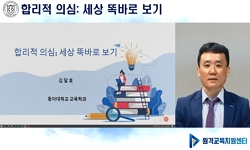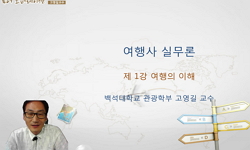일본문학을 전공하는 박유하 교수가 2013년 출간한 『제국의 위안부』와 관련하여 서울고등법원은 2017년 ‘허위의 사실을 적시’하여 위안부의 명예를 훼손하였다는 이유로 유죄 판결을 하...
http://chineseinput.net/에서 pinyin(병음)방식으로 중국어를 변환할 수 있습니다.
변환된 중국어를 복사하여 사용하시면 됩니다.
- 中文 을 입력하시려면 zhongwen을 입력하시고 space를누르시면됩니다.
- 北京 을 입력하시려면 beijing을 입력하시고 space를 누르시면 됩니다.
부가정보
국문 초록 (Abstract)
일본문학을 전공하는 박유하 교수가 2013년 출간한 『제국의 위안부』와 관련하여 서울고등법원은 2017년 ‘허위의 사실을 적시’하여 위안부의 명예를 훼손하였다는 이유로 유죄 판결을 하였다. 항소심 판단은, 사용된 어휘의 통상적 의미, 전체적 흐름, 문구의 연결, 전체의 문맥이나 사회적 흐름 등을 종합적으로 검토하지 않고, 이 사건 표현을 파편화하여 그 의미를 왜곡하였다. 무엇보다도, 유죄에 대한 상당한 의심(actual and substantial doubt)을 무시하고 ‘합리적 의심의 배제’라는 형사 증거법의 기본원칙을 어겼다는 비난을 피하기 힘들다. 이 사건 표현은 기본적으로 학자의 의견이고 평가이다. 입장을 달리하여 이 사건 표현들 가운데 ‘사실’이 일부 있다 하더라도 그 사실은 『제국의 위안부』의 전체적 맥락에서 파악하면 ‘허위’ 사실이라고 단정할 수 없는 표현이다. 한편 『제국의 위안부』의 ‘위안부’란 ‘조선인 일본군 위안부 전체’를 의미한다는 점이 맥락상 분명한데, 항소심은 굳이 이 사건 피해자들을 지칭하는 것으로 범위를 좁혔다. 위안부 문제와 같이 공적인 관심사이자 역사적 사실의 표현에 있어서는, 관련자들의 명예와 함께 역사적 사실의 탐구 및 표현의 자유 역시 보호되어야 한다. 객관적 자료에 한계가 있고, 시각을 달리하는 새로운 자료가 뒤엉켜 객관적 진실 여부를 확인하는 것이 용이하지 않은 사건에서는 유죄 판단을 극도로 자제하여야 할 것이다(대법원 1998. 2. 27. 선고 97다19038 판결 등). 항소심은 학술서에 대한 사법적 판단에 반드시 필요한 절제와 고심의 경계선을 크게 넘었다.
다국어 초록 (Multilingual Abstract)
The challenged statements are basically opinions and evaluations of a scholar about diverse situations of comfort women. They are mostly “pure opinions” based on known references by the third parties. Even though some statements may be sorted out as “facts”, they are not “false” considering the relative contexts of the whole book. And the “comfort women” referred to in the book comprises the whole comfort women who suffered during Japanese colonialism, however, the Appeals Court was of the opinion that the 9 ex-comfort women who filed the criminal action against the author were specified in the book. In dealing with criminal cases on historic issues like comfort women, the court should be careful in balancing the freedom of speech and accuser’s reputation. Where objective materials are scarce, and materials from different perspectives are confusing, the court should refrain from putting the defendant under penal liability. However, Seoul Appeals Court, in this case, seemed to cross the line.
In 2017 regarding the book 『Empire’s Comfort Women』” written by Prof. Park, Japanese literature professor, Seoul Appeals Court ruled some parts are criminally libelous “false statement of facts” defaming “comfort women” under Japanese ...
In 2017 regarding the book 『Empire’s Comfort Women』” written by Prof. Park, Japanese literature professor, Seoul Appeals Court ruled some parts are criminally libelous “false statement of facts” defaming “comfort women” under Japanese Colonialism. The Korean Supreme Court repetitively held that, when assessing whether the statement is fact or opinion, “a totality of the circumstances” approach is best, considering the common usage or meaning of the language of the challenged statements, the statement’s verifiability, the full context of the statement, and the broader context or setting in which the statement appears. But in this case, the Appeals Court rejected this settled standard, leaving the challenged statements separate and apart from full context and the broader social context. What’s more, the Appeals Court seems to violated the criminal evidence rule by neglecting the principle of “beyond a reasonable doubt” as actual and substantial doubts still remains.
The challenged statements are basically opinions and evaluations of a scholar about diverse situations of comfort women. They are mostly “pure opinions” based on known references by the third parties. Even though some statements may be sorted out as “facts”, they are not “false” considering the relative contexts of the whole book. And the “comfort women” referred to in the book comprises the whole comfort women who suffered during Japanese colonialism, however, the Appeals Court was of the opinion that the 9 ex-comfort women who filed the criminal action against the author were specified in the book. In dealing with criminal cases on historic issues like comfort women, the court should be careful in balancing the freedom of speech and accuser’s reputation. Where objective materials are scarce, and materials from different perspectives are confusing, the court should refrain from putting the defendant under penal liability. However, Seoul Appeals Court, in this case, seemed to cross the line.
목차 (Table of Contents)
- 〈국문초록〉
- Ⅰ. 사건의 배경
- Ⅱ. 서울고등법원의 판단
- Ⅲ. 법원 판단의 분석
- Ⅳ. 결론
- 〈국문초록〉
- Ⅰ. 사건의 배경
- Ⅱ. 서울고등법원의 판단
- Ⅲ. 법원 판단의 분석
- Ⅳ. 결론
- 〈참고문헌〉
- 〈ABSTRACT〉
동일학술지(권/호) 다른 논문
-
- 인하대학교 법학연구소
- 정연주(Jung, Yonju)
- 2020
- KCI등재
-
- 인하대학교 법학연구소
- 김권일(Kim, Kwonil)
- 2020
- KCI등재
-
- 인하대학교 법학연구소
- 김현철(Kim, Hyunchul)
- 2020
- KCI등재
-
- 인하대학교 법학연구소
- 최춘식(Choi, Choon Sik)
- 2020
- KCI등재






 DBpia
DBpia







